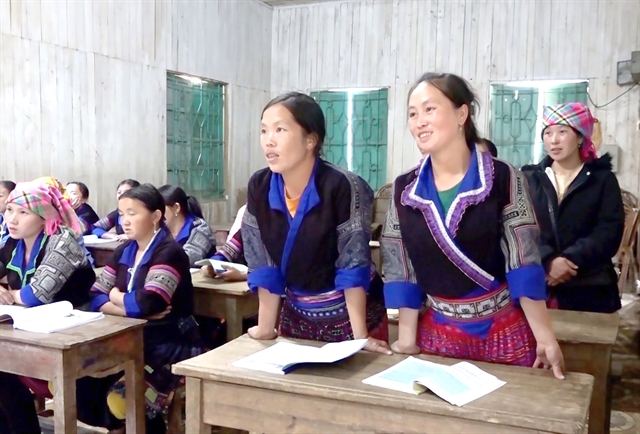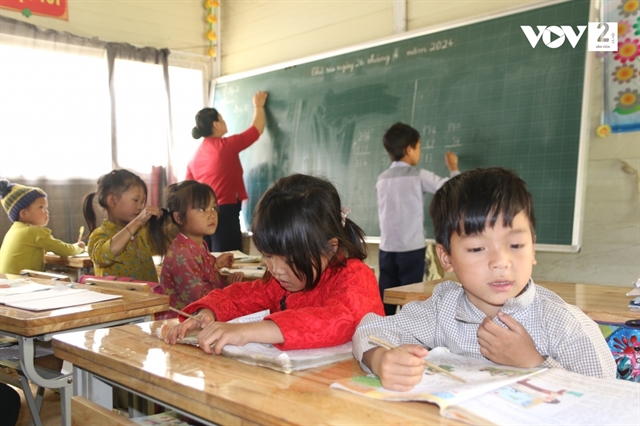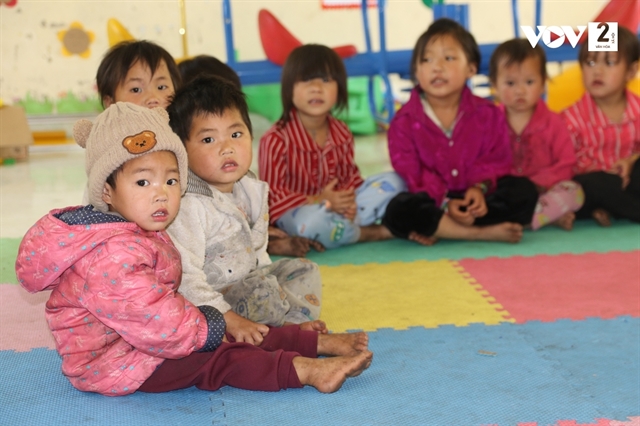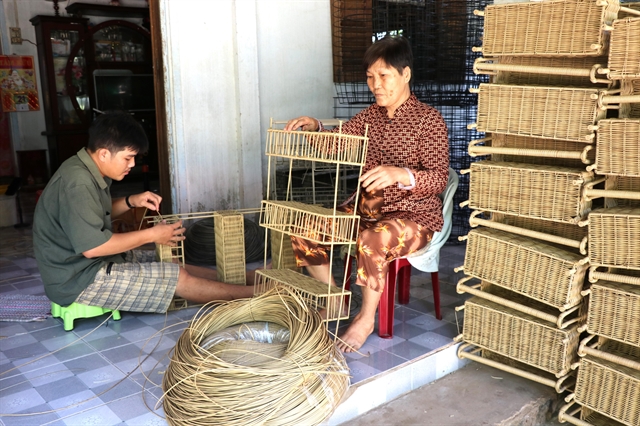 Society
Society

 |
| Two groups of students, from Grade 1 and Grade 2, study at the same classroom in Cà Lò School. — Photos vov.vn |
CAO BẰNG — At Cà Lò School in the northern mountainous province of Cao Bằng, a teacher has to teach two groups of students at the same time in one classroom.
“The classroom is divided into half. When I give a new lesson to the first graders, the second graders, sitting on the opposite side of the room and turning back to another group, review the lessons,” teacher Lý Thanh Trầm told Voice of Vietnam (VOV).
Cà Lò is the most distant school in Khánh Xuân Commune, Bảo Lạc District, and has around 30 kindergarten and primary school pupils, but just three teachers.
Even with the hamlet's inadequate infrastructure—no roads, power, phone service or clean water—teachers and students make a valient attempt to keep the classes running.
Trầm said: “It is such a challenge to teachers. When teachers shift their focus to Grade 1 pupils, pupils in Grade 2 get disinterested. We have to give detailed instructions to every student to help them focus on the lesson.”
Teachers from a local secondary school have now been mobilised to teach English and Computer Science at Cà Lò School. Because there is no electricity or internet, online teaching is not possible so once very week, the teachers have to travel nearly 40km, uphill and through the forest, to Cà Lò.
Trầm, who has been teaching at the school for eight years, said local education has improved compared to 2012-2013 when she first started working there.
The school has two classrooms for Grades 1 to 4, while students from Grade 5 are required to attend the main school, which is situated a long distance from the community.
Sadly there are fewer children taking the higher level classes because not every child at this age has the courage to walk through the woods to school.
Trầm said that often a pupil in Grade 5 will return to the local school to go back and study with children from the year below after starting fifth grade far away from home.
The other concern, explained teacher Dương Văn Thành, is that sometimes three out of six students in the class take a day off as they have to stay at home to look after their younger siblings.
“I have to go to their houses to encourage them to attend class. I tell them they can bring the siblings to class and we will help in taking care of their younger siblings," he said.
 |
| Kindergarten children at the school. |
A volunteer organisation donated two solar power grids to the school at the beginning of 2013 so the teachers no longer have to teach under the light of candles, but they must limit their use of electricity extremely cautiously because it only lasts for one to two hours after it rains.
Teacher Trầm said she had often nearly burst into tears as students all left class at 10am without coming back.
“The students left at that time, according to what I learned, because parents didn't start preparing breakfast for their children until 10am. So I arranged a meeting with the parents and the school’s Board of Directors to propose a day boarding school service.”
Students can now have lunch at the school and the dedicated teachers now rotate with weekly trips to the commune to purchase food, charge electronics, get extra batteries and print paperwork.
Đàm Văn Chuẩn, vice chairman of Khánh Xuân Commune People's Committee, said the commune has three main schools located 8km from the district centre.
Only 60 per cent of students who graduate from secondary school continue into high school or vocational training. Local authorities have encouraged students, especially those from low-income households, to continue study by by providing housing, food and other necessities. But due to long distances they need to travel and disadvantaged circumstances, many of them drop out of school, he said. — VNS




